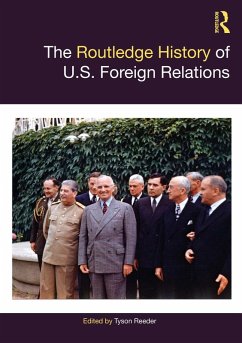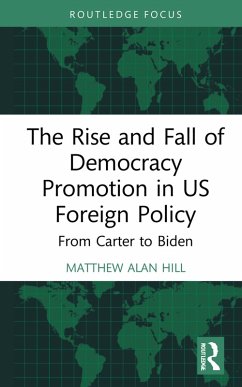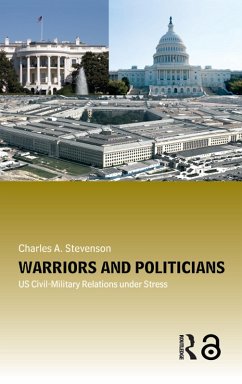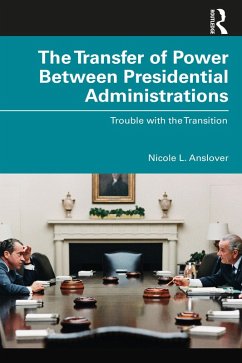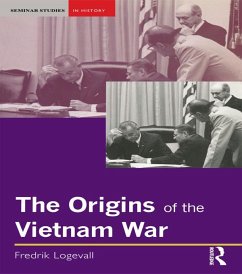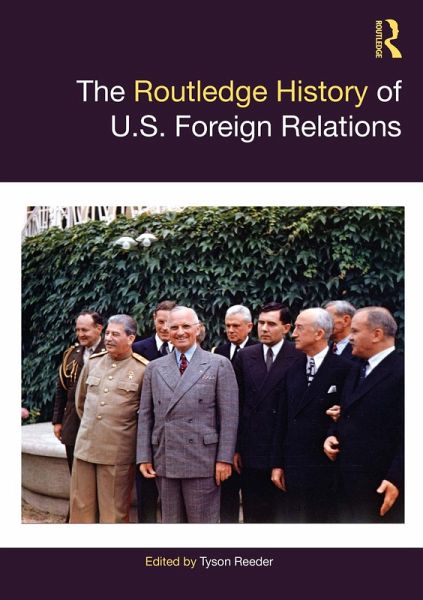
The Routledge History of U.S. Foreign Relations (eBook, PDF)
Versandkostenfrei!
Sofort per Download lieferbar
43,95 €
inkl. MwSt.
Weitere Ausgaben:

PAYBACK Punkte
22 °P sammeln!
The Routledge History of U.S. Foreign Relations provides a comprehensive view of U.S. diplomacy and foreign affairs from the founding to the present.With contributions from recognized experts from around the world, this volume unveils America's long and complicated history on the world stage. It presents the United States' evolution from a weak player, even a European pawn, to a global hegemonic leader over the course of two and a half centuries. The contributors offer an expansive vision of U.S. foreign relations-from U.S.-Native American diplomacy in eighteenth and nineteenth centuries to th...
The Routledge History of U.S. Foreign Relations provides a comprehensive view of U.S. diplomacy and foreign affairs from the founding to the present.
With contributions from recognized experts from around the world, this volume unveils America's long and complicated history on the world stage. It presents the United States' evolution from a weak player, even a European pawn, to a global hegemonic leader over the course of two and a half centuries. The contributors offer an expansive vision of U.S. foreign relations-from U.S.-Native American diplomacy in eighteenth and nineteenth centuries to the post-9/11 war on terror. They shed new light on well-known events and suggest future paths of research, and they capture lesser-known episodes that invite reconsideration of common assumptions about America's place in the world. Bringing these discussions to a single forum, the book provides a strong reference source for scholars and students who seek to understand the broad themes and changing approaches to the field.
This book will be of interest to students and scholars of U.S. history, political science, international relations, conflict resolution, and public policy, amongst other areas.
With contributions from recognized experts from around the world, this volume unveils America's long and complicated history on the world stage. It presents the United States' evolution from a weak player, even a European pawn, to a global hegemonic leader over the course of two and a half centuries. The contributors offer an expansive vision of U.S. foreign relations-from U.S.-Native American diplomacy in eighteenth and nineteenth centuries to the post-9/11 war on terror. They shed new light on well-known events and suggest future paths of research, and they capture lesser-known episodes that invite reconsideration of common assumptions about America's place in the world. Bringing these discussions to a single forum, the book provides a strong reference source for scholars and students who seek to understand the broad themes and changing approaches to the field.
This book will be of interest to students and scholars of U.S. history, political science, international relations, conflict resolution, and public policy, amongst other areas.
Dieser Download kann aus rechtlichen Gründen nur mit Rechnungsadresse in A, B, BG, CY, CZ, D, DK, EW, E, FIN, F, GR, HR, H, IRL, I, LT, L, LR, M, NL, PL, P, R, S, SLO, SK ausgeliefert werden.




